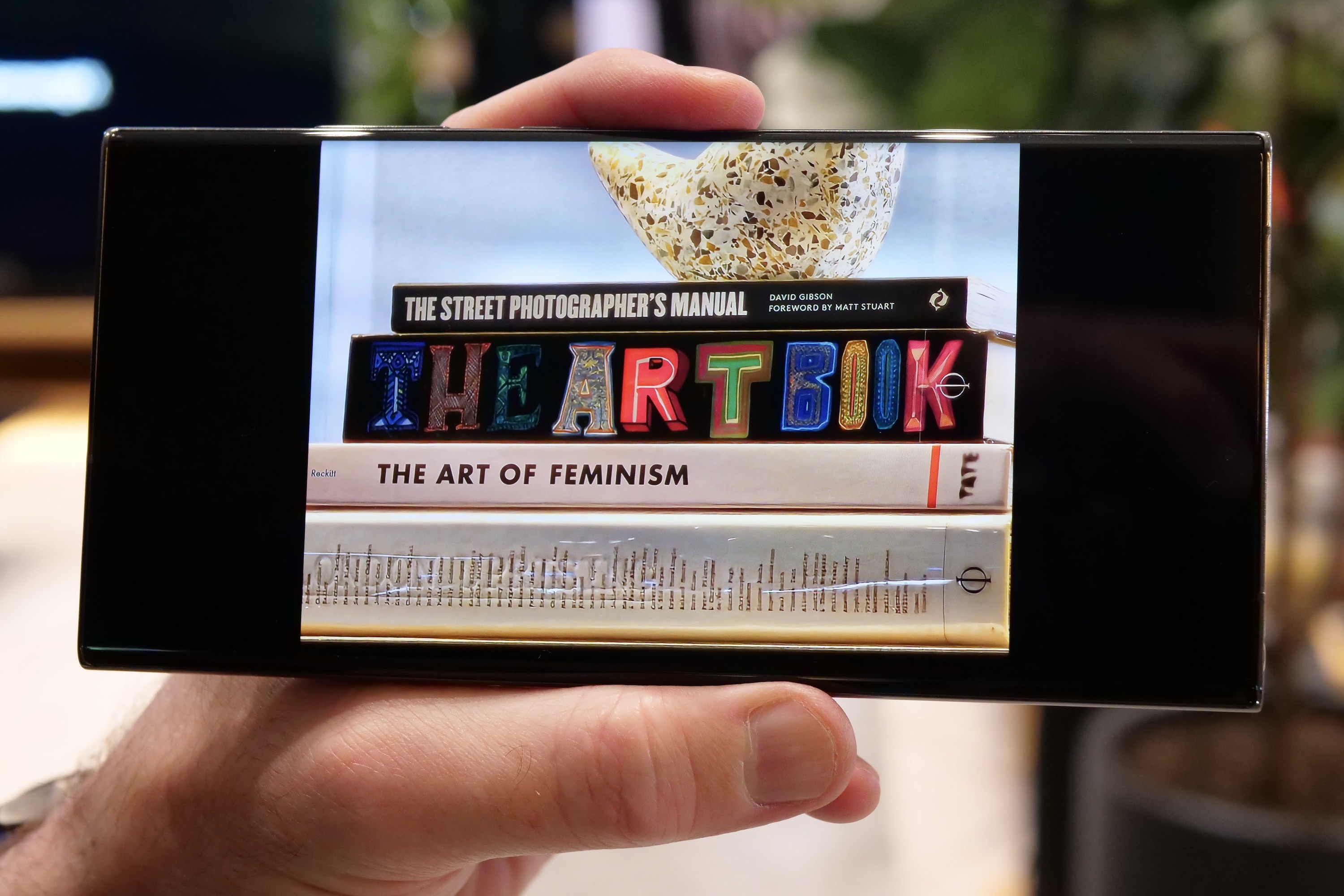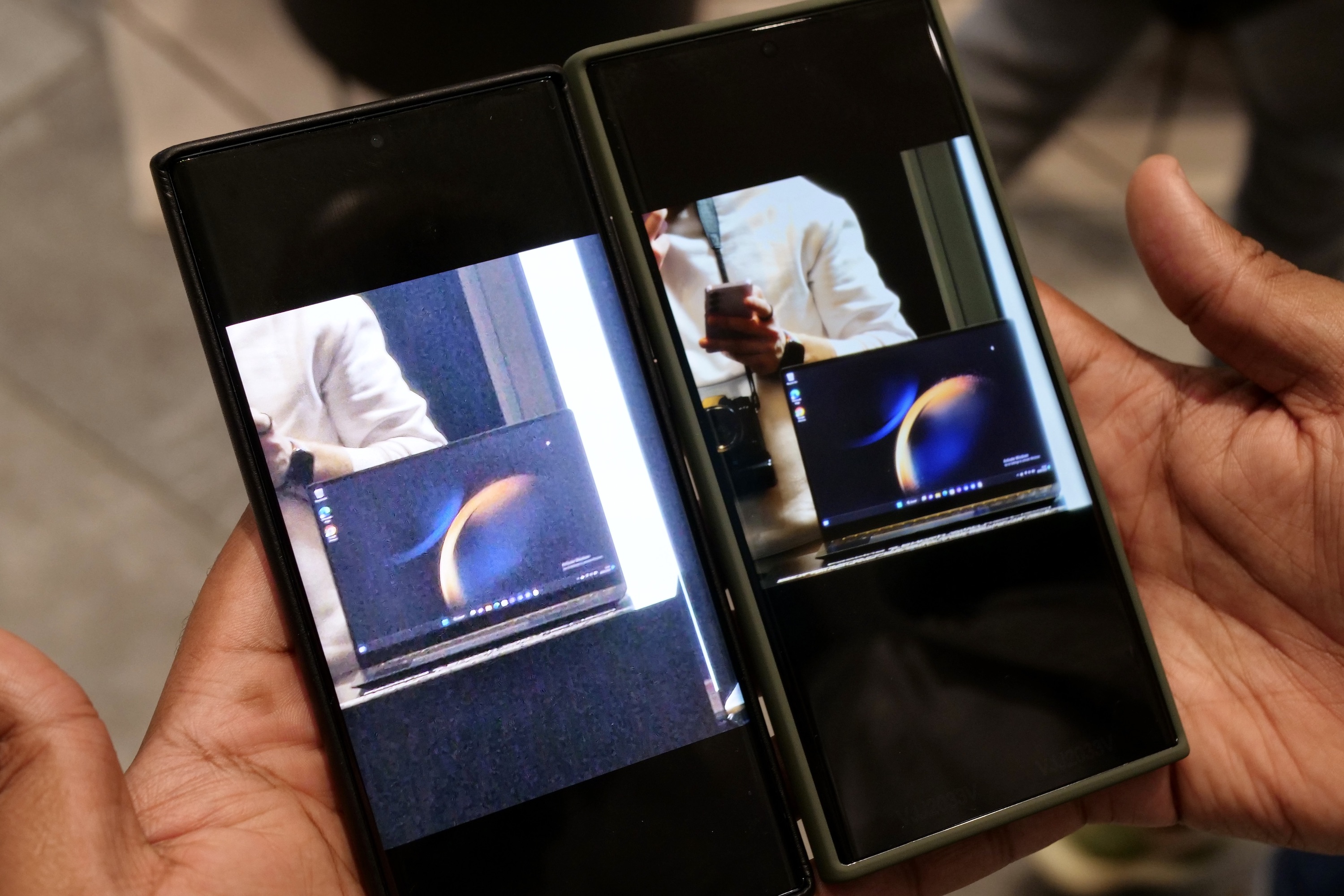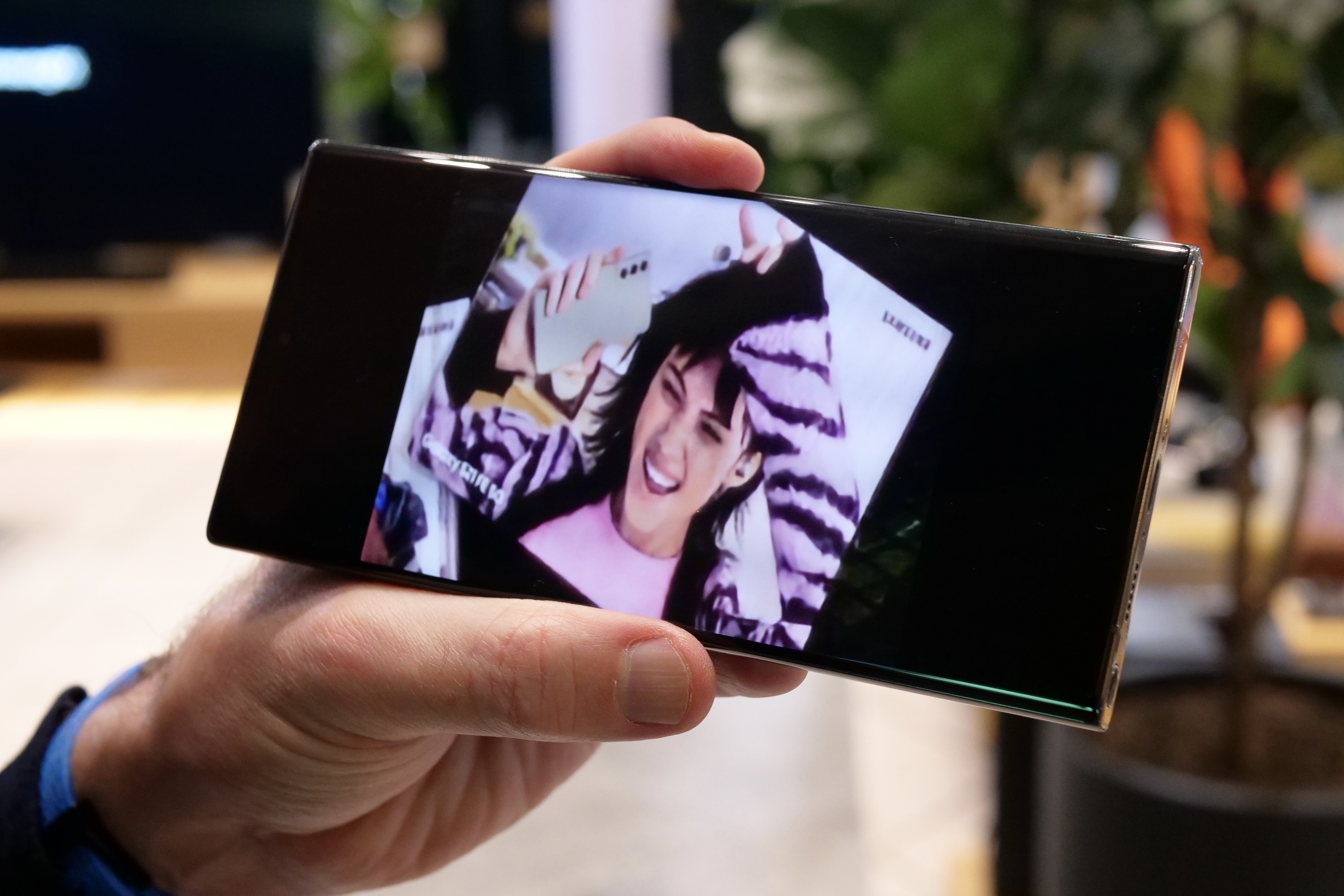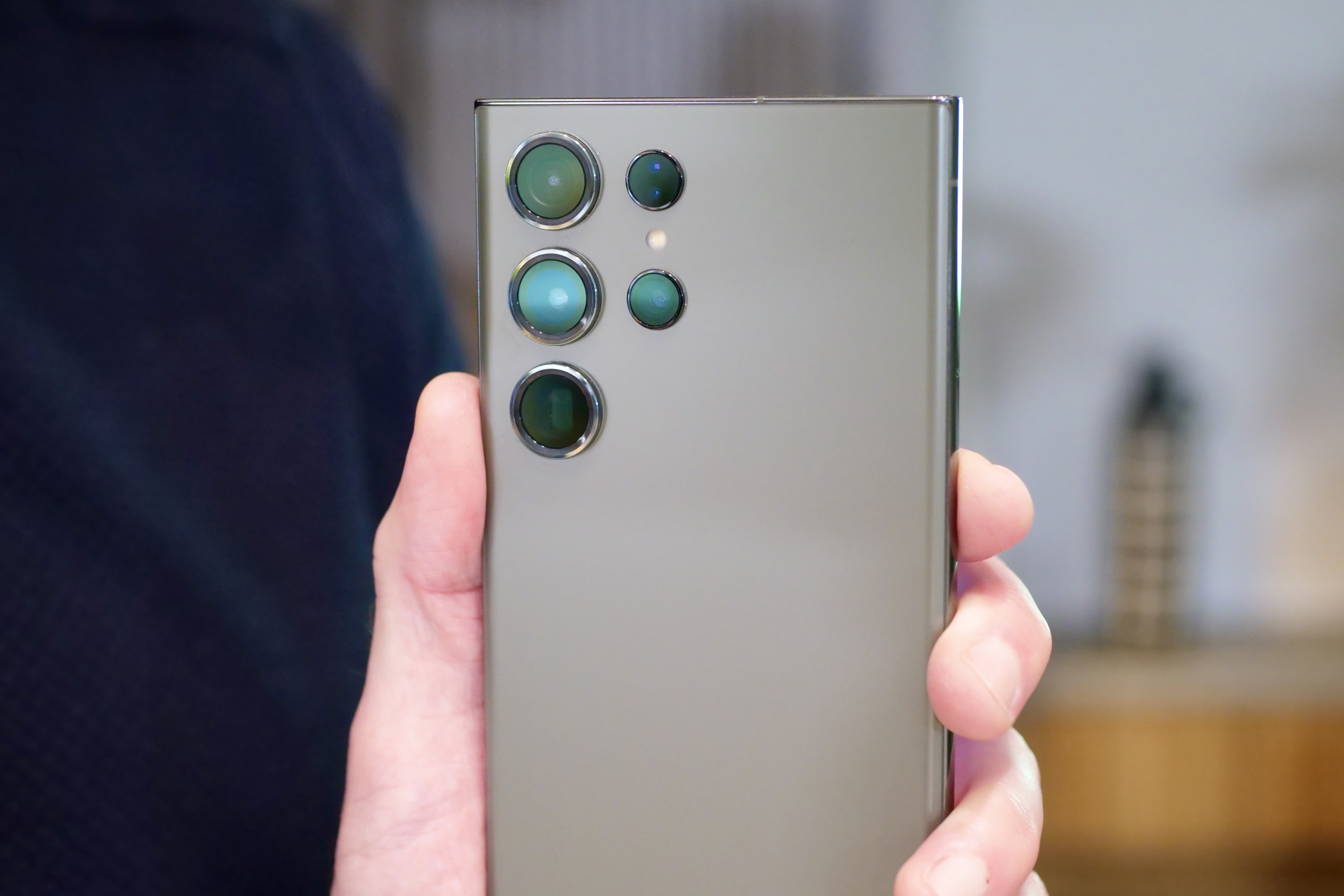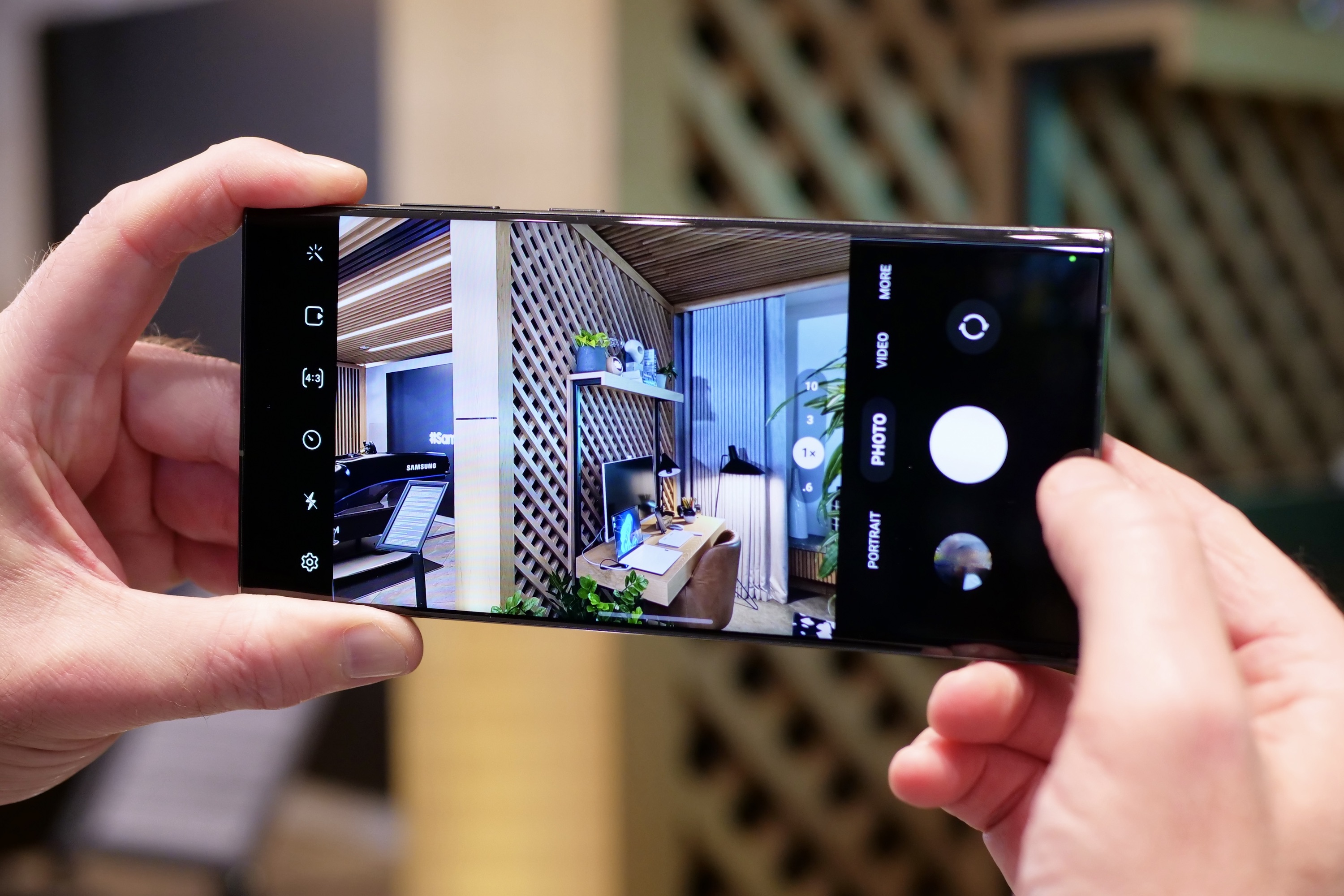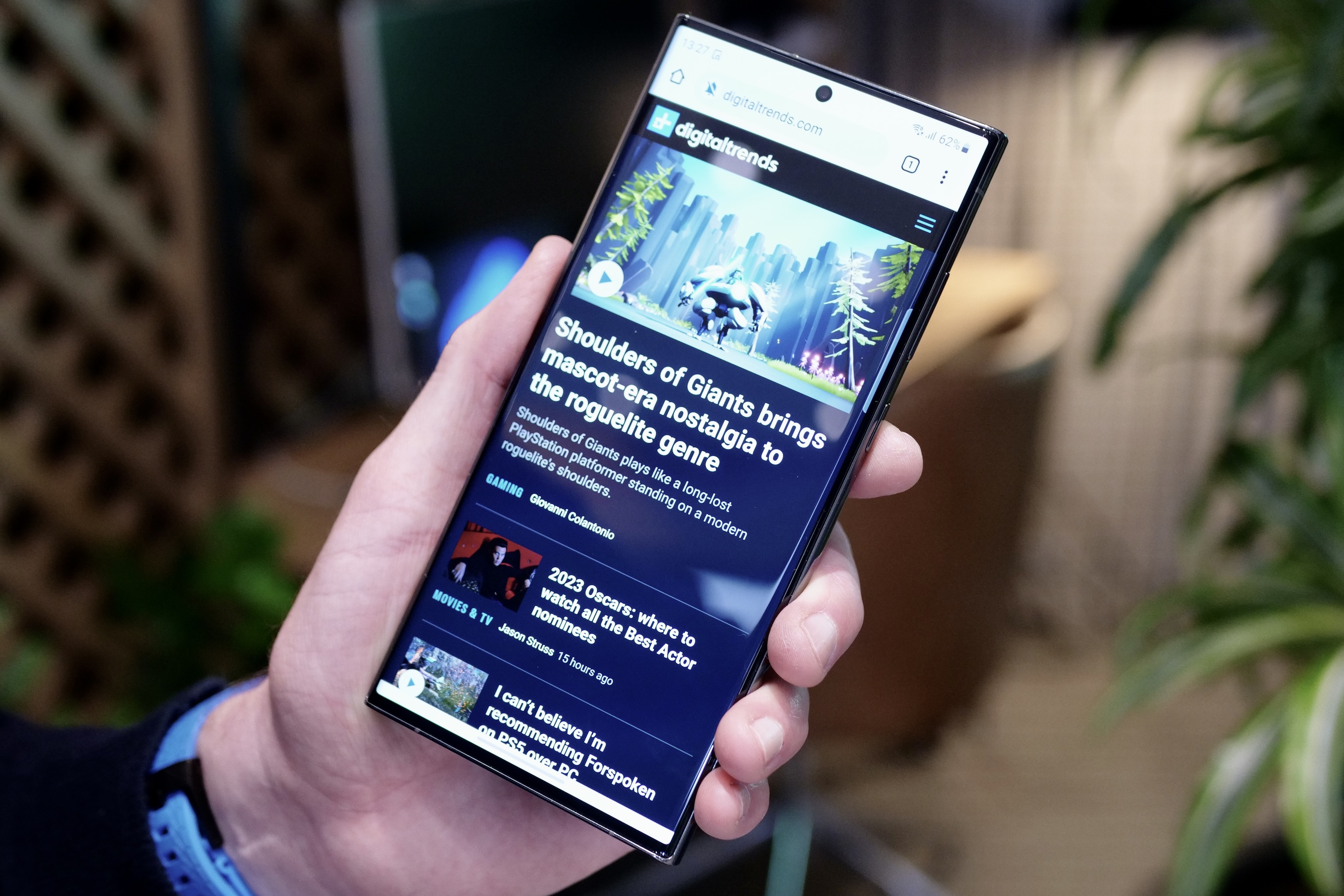Be prepared, because you may feel a twinge of disappointment when you first see the Galaxy S23 Ultra. But I promise you it won’t last.
There aren’t any major exterior upgrades over the Galaxy S22 Ultra, and even the most astute mobile spotter may not even be able to tell the difference between them at a glance. However, it’s what’s inside that counts, and what’s inside the Galaxy S23 Ultra, from what I can tell at this stage, is mightily impressive.
Samsung’s new design looks familiar
Samsung hasn’t changed the look of the Galaxy S23 Ultra, but unbelievably, it seems to have become a tiny bit bigger. The physical specifications don’t show much, if any difference. But when you hold the two, a subtle variation in shape and weight means the Galaxy S23 Ultra feels even meatier than before. It’s not by much, and seeing as the Galaxy S22 Ultra is already massive, no one will notice or likely care unless the two are held side by side. It’s still surprisingly comfortable to hold due to the curved chassis, but it’s a two-handed affair if you want to do anything meaningful on the screen.
The S Pen stylus is hidden away inside a slot on the base of the phone, and there’s a charging port, a thin volume rocker on the side, and a choice of a few colors. The green in our photos can appear drab, but get it in the right light, and it really pops. No, there still isn’t a headphone jack.
Hand-stretching size aside, it’s business as usual. It’s clear that no one thought particularly hard about redesigning the S22 Ultra’s sensible, safe design for the latest model. I do miss the Galaxy S21 Ultra’s trend-setting camera module shape, as the individually set cameras here don’t give the phone any character.
But character isn’t the point. The Galaxy S23 Ultra, once again, is a prudent choice. The innocuous shape attracted a lot of people in 2022, so it’ll likely do the same in 2023. And best of all, it’ll still look mature and desirable in 2024 too. It’s not challenging in any way, and I expect a lot of people will choose it precisely because of that.
What’s inside the S23 Ultra is really exciting
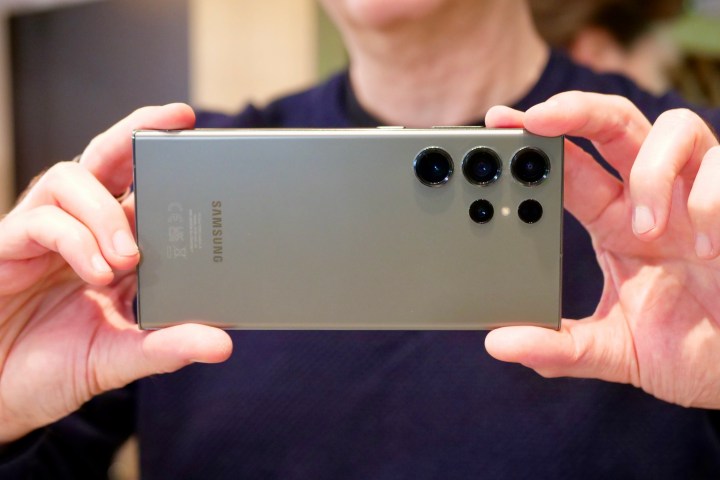
The Galaxy S22 Ultra’s camera is still excellent, and specification-wise, there aren’t many changes here either. The 10-megapixel telephoto cameras and 12MP wide-angle in the Galaxy S23 appear to have the same specs, at the very least. But in the short time I had to use the phone, it made me want to get out and use it a lot more, and it’s all down to the new 200MP ISOCELL HP2 sensor. It’s very different from the 108MP camera on the S22 Ultra, and I couldn’t be more excited about its potential.
I took a selection of photos with it indoors, and the results were eye-widening good, full of contrast and color, with spot-on exposure and fantastic HDR. The same enhancements seen in stills apply when shooting video too, and the footage appears to be smoother, with improved focus even when the camera is moving erratically.
It has been a while since I used an S22 Ultra, and switching to 10x zoom reminded me of what I’ve been missing. It’s such an amazingly versatile feature, and the quality is even better than before. It gets in close, yet without any consistency problems. But it was trying the 30x zoom mode that really impressed me. The Galaxy S23 Ultra’s 30x photos look good. Usable good.
The 100x photos are getting close to how the 30x mode was a year ago.
When you put them alongside the ones taken with the S22 Ultra, it’s immediately obvious how much difference the combination of the 200MP camera, the telephoto camera, and Samsung’s software has made to this mode. Even more surprisingly, the 100x photos are getting close to how the 30x mode was a year ago.
The 200MP camera, Samsung’s software and AI, and the Qualcomm Snapdragon 8 Gen 2 processor appear to be working in perfect harmony here, really bringing out the potential of the camera system. I’ve used a 200MP camera on a smartphone already, and it was good, but not something that I’ve felt the need to experiment with again. That’s not the case with the Galaxy S23 Ultra’s camera. I can’t wait to try it again.
It’s not just the camera

After I had played with the camera, and said “ooh” and “ahh” quite a lot, I sat down and used the phone itself for a while. I’ve spent some time with a Snapdragon 8 Gen 2-powered phone already, and it was a clear upgrade over the excellent Snapdragon 8+ Gen 1, but I don’t recall noticing the speed at every turn.
That’s what happened with the S23 Ultra. Whether I was scribbling on the screen with the S Pen, browsing Chrome, or editing some photos, it absolutely flew. Smooth, fast, and precise — exactly what I want from a phone that costs this much. And as Samsung explained to us in an interview, the Snapdragon 8 Gen 2 chip inside the S23 Ultra has a few upgrades you won’t find in other Android phones this year with the same silicon.
The screen is also shockingly bright, with a massive 1,750 nits possible in the right conditions. I had to turn it down to almost the minimum level to take photos of it! Slide the brightness to maximum on the Galaxy S23 Ultra, and you can say goodbye to your retinas. If you live somewhere with a lot of bright sunlight (you lucky thing), I doubt you’ll need to search for shade to see the S23 Ultra’s screen outside.
However, as it’s a 6.8-inch Dynamic AMOLED with a 120Hz refresh rate, it is otherwise the same as the S22 Ultra. The S23 Ultra isn’t a phone to dig through the specification sheet to find the upgrades. For example, it still has a 5,000mAh battery inside with wired and wireless charging, a maximum of 12GB RAM, 5G connectivity, IP68 water resistance, and Samsung’s Armor Aluminum chassis. All quite familiar, just like the phone’s exterior.
Galaxy S23 Ultra price and availability
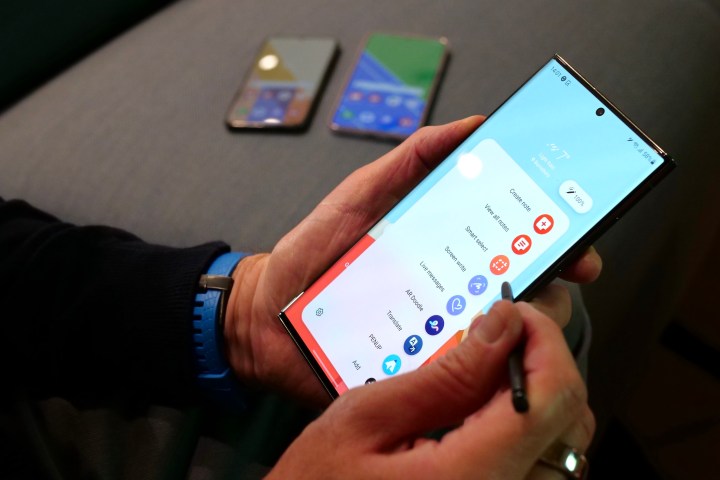
Samsung has upgraded the storage space inside the Galaxy S23 Ultra (and the Galaxy S23 Plus) to start at 256GB, twice that of the entry-level Galaxy S22 Ultra, and the good news is the phone still starts at $1,199.
However, in the U.K., it’s more expensive than last year, with the basic model priced at 1,249 British pounds, the 512GB version at 1,399 pounds, and the Samsung-exclusive 1TB model a massive 1,599 pounds.
You can pre-order the Galaxy S23 Ultra right now, and the phone is out on February 17.
Looking good for the future
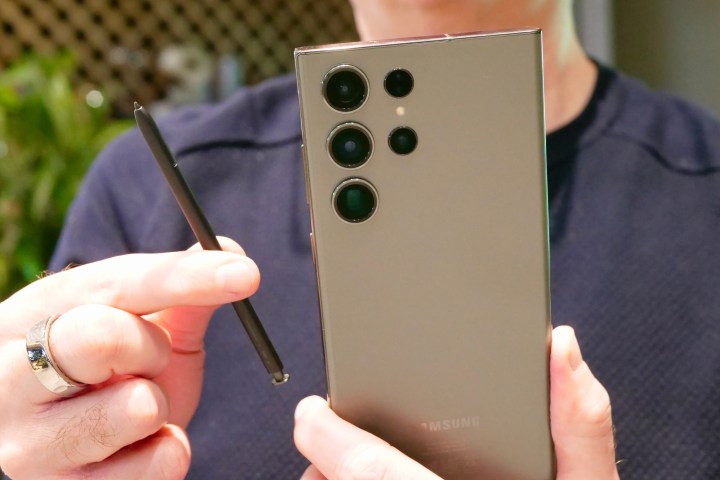
Any disappointment in the Galaxy S23 Ultra will only remain if you simply see it in pictures, or lazily peruse the spec sheet looking for “upgrades.” The changes are there, and although they could be dismissed as “iterative,” when you use the phone, it’s clear they are much more than that. And that’s even true of the regular Galaxy S23 and S23 Plus!
I fell for the Galaxy S23 Ultra in the 90 minutes I spent with it, but I’m also a realist, and my initially very positive impression is based on only a short time using it. I don’t know how long the battery will last, I haven’t tried the camera outside yet, and I don’t know how the software and performance will be when I use it with all my usual apps for hours each day. Time will tell if this early excitement will become a long-term love affair.
But judging by my time with the Galaxy Z Fold 4 and Galaxy Z Flip 4, I’m not expecting much to change. Samsung is producing fantastic smartphones at the moment, and while the Galaxy S23 Ultra’s design may not break new ground, it has concentrated on making the rest of the phone the very best it can be — and potentially even worthy of upgrading from the S22 Ultra. Rarely do modern flagship smartphones provide such an enticing level of advancement after only a year, so it’ll be a hugely impressive achievement if it can pull this off, but the Galaxy S23 Ultra may actually have what it takes.
Editors’ Recommendations

